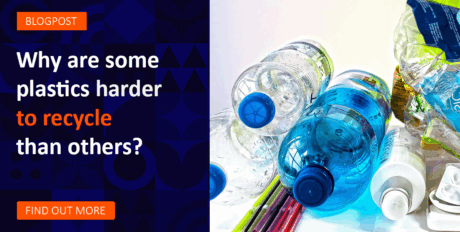Contact us today for your Free Quote
October marks the UK’s Black History Month, a time to celebrate and acknowledge the immense contributions of Black people to British life and culture. While we often rightly spotlight figures in the arts, civil rights, and politics, it’s just as important to highlight the unsung heroes who have been at the forefront of environmental justice and the sustainability sector.
The story of environmentalism has historically been presented as a predominantly white, middle-class one. However, this has never been the full story. For generations, Black activists, community organisers, and professionals have been working tirelessly to protect our planet. They’ve challenged the notion that environmental issues are separate from social and racial justice, demonstrating that access to clean air, green spaces, and sustainable waste management is a fundamental human right for everyone.
This Black History Month, we’re shining a light on these pioneers. From the founders of organisations connecting Black communities with nature to the young climate strikers demanding racial justice at the heart of the climate movement, we’ll explore the vital and often overlooked work of Black key players in the environment and waste management sector across the World.
Pioneers and modern changemakers
Dr. Robert Bullard: “Father of Environmental Justice”
Referred to as the “Father of Environmental Justice,” Dr. Robert Bullard is a distinguished professor and author whose early-1980s research provided systematic evidence of what is now known as environmental racism. His work—later brought together in his landmark book Dumping in Dixie (1990)—showed that Black communities in the United States were disproportionately targeted for landfills and toxic facilities. This scholarship demonstrated that racial discrimination shaped environmental policy and siting decisions, shifting the focus of environmental activism to include public health, equity, and human rights. Bullard’s decades of advocacy make clear that protecting the environment is not just about landscapes or wildlife but about the well-being of people and place, especially those on the frontline of pollution.
Hazel M. Johnson: The Mother of Environmental Justice
In Chicago, Hazel M. Johnson became a grassroots powerhouse, dedicating her life to fighting for environmental rights in her community. After discovering that her public-housing neighbourhood, Altgeld Gardens, was surrounded by industrial facilities and toxic waste sites, she founded People for Community Recovery in 1979. Known as the “Mother of Environmental Justice,” Johnson organised residents, gathered data, and brought national attention to environmental health harms facing Black communities. Her leadership helped prove that where you live should not determine your exposure to risk, and that clean air, water, and land must be guaranteed for everyone. Johnson’s legacy endures in community-led monitoring, policy reform, and the principle that local voices belong at the centre of sustainability decisions.
Wangari Maathai: The Visionary Behind the Green Belt Movement
Taking the fight for a healthy planet to a global scale, Wangari Maathai was a Kenyan environmental and political activist and the first African woman to win the Nobel Peace Prize. In 1977 she founded the Green Belt Movement. The organisation empowered women to plant tens of millions of trees to combat deforestation, soil erosion, and climate change impacts. By linking environmental conservation with sustainable livelihoods and community development, Maathai showed that protecting ecosystems is a powerful tool for poverty reduction and the empowerment of marginalised communities. Her vision proved that grassroots action can create monumental change and that environmentalism is fundamentally linked to human rights, dignity, and climate resilience.
Leah Thomas: The Architect of Intersectional Environmentalism
As a leading voice in the climate movement, Leah Thomas, has fundamentally changed the conversation around environmentalism. An American activist and author, she is widely credited with coining the term “Intersectional Environmentalist”, a framework that acknowledges the disproportionate impact of environmental harm on marginalised communities, particularly those of colour. Through her platform and her book, The Intersectional Environmentalist, Leah advocates for a more inclusive and just approach to sustainability. Her work highlights the truth that we cannot solve the climate crisis without addressing the social and racial injustices at its core, urging the environmental movement to become a more welcoming and effective space for everyone.
Sinah Mojanko: A Pioneer in South African Recycling
The global sustainability movement is driven by countless local leaders, and Sinah Mojanko is a powerful example from Africa. As the founder and CEO of Tiyamo Recycling, a South African-based business, she is transforming the waste management sector from the ground up. Her work goes beyond simple recycling; it’s about creating economic opportunities for her community by empowering unemployed individuals and turning them into entrepreneurs. By making recycling a profitable and sustainable business, Mojanko is proving that environmental protection and social progress can go hand in hand, creating jobs and cleaning up the environment at the same time.
Aurora James: Brother Vellies
Aurora James founded Brother Vellies with the intention of preserving traditional African design practices and creating artisanal jobs. . Her commitment to ethical production goes far beyond the company’s initial goals. She sources sustainable materials, including vegetable-tanned leathers, materials from recycled tires, and a variety of by-products from local farmers. This ethical production model ensures that her luxury accessories are not only beautiful but also honour the people who make them. James’s work extends beyond her own brand; she is also the founder of the 15 Percent Pledge, a non-profit organisation that urges major retailers to dedicate 15% of their shelf space to Black-owned businesses. Through this initiative, she directly links corporate responsibility to economic equity.
Karen Young: OUI the People
Karen Young founded OUI the People with a mission to celebrate every body while challenging the beauty industry’s plastic waste problem. Her personal experience and upbringing in Guyana, South America, instilled in her a deep awareness of living close to the land and a natural respect for sustainability. This foundation is reflected in her brand’s commitment to using refillable glass bottles for its products. Young’s approach encourages consumers to make simple yet impactful swaps, like using the brand’s award-winning stainless steel razor, to reduce their reliance on single-use plastics and embrace a more sustainable beauty routine.
SaVonne Anderson: Aya Paper Co.
As an advocate for environmental justice, SaVonne Anderson founded Aya Paper Co. to address the lack of sustainability and diversity within the greeting card industry. She ensures all her paper products are made from 100% recycled materials and are produced locally in the U.S. using plastic-free, Process Chlorine Free (PCF) methods. By sourcing recycled post-consumer waste paper, Anderson not only reduces the environmental footprint of her products but also provides a sustainable alternative to generic greeting cards that often rely on chemically processed materials. Her work with Aya Paper Co. proves that it’s possible to create beautiful products that are both good for people and the planet.
Linda Mabhena-Olagunju: DLO Energy Resources Group
Linda Mabhena-Olagunju founded DLO Energy Resources Group in South Africa with a clear vision of creating Africa’s largest energy company entirely owned by Black women. As an independent power producer, she is committed to developing and operating renewable energy projects, with a portfolio that includes large-scale wind and solar farms. By generating clean, carbon-free energy, Mabhena-Olagunju’s company directly combats climate change and works to close the energy gap on the African continent. Her work demonstrates how Black-owned businesses are not only participating in the green economy but are also leading it with large-scale infrastructure projects that will shape Africa’s energy future.
Bywaters Environmental Equity and Community Commitment
At Bywaters, our commitment to sustainability goes beyond simply diverting waste from landfills. It means ensuring our operations are conducted with environmental equity in mind. It means engaging with the communities we serve and listening to their concerns. True sustainability requires us to not only manage waste effectively but also to advocate for a just and fair system where every individual has equal access to a clean and healthy environment. This Black History Month, we reaffirm our commitment to being an active partner in building that future.
This Black History Month, we’ve explored more than just history; we’ve seen how the fight for a clean environment is deeply rooted in the fight for social justice. From the pioneering research of Dr. Robert Bullard to the grassroots efforts of Hazel M. Johnson, and from the global vision of Wangari Maathai to the modern leadership of Leah Thomas and the innovative work of Black entrepreneurs, it is clear that Black communities have been, and continue to be, at the very heart of the sustainability movement.
The legacy of these leaders reminds us that true sustainability goes beyond recycling and efficient waste management. It demands that we confront inequality, advocate for environmental equity, and ensure that every community has the right to clean air, land, and water. At Bywaters, we are committed to only not doing our part in managing waste responsibly but also in championing a more just and inclusive environmental future. By continuing to learn and act, we can honour the legacy of the past and build a more sustainable world for all.
More posts:
Valentine’s Day: History, Tradition, and Its Modern Impact
This post traces the evolution of Valentine’s Day from ancient Roman rituals to a global commercial event. It highlights the holiday’s hidden environmental impact and offers a guide to celebrating sustainably through “Circular Romance” and waste reduction.
Read morePlastic Recycling: Why Are Some Types Harder to Process Than Others?
Some plastics recycle easily, while others are difficult or impractical to process at scale. This article explains why material type, packaging design, contamination and recycling infrastructure all play a role, and what businesses can do to improve plastic recycling outcomes in the UK.
Read moreThe Ultimate Guide For a Sustainable School and University
Download The Ultimate Guide For a Sustainable School or University. Get the roadmap to cut costs, reduce your carbon footprint, and boost your ESG profile with 5 core pillars.
Read more




